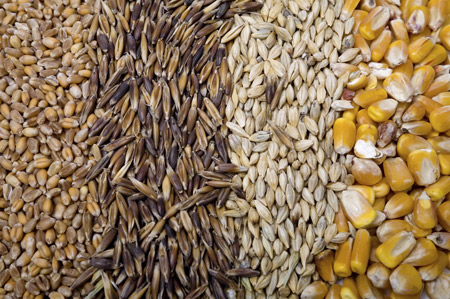 (Agrimoney) – Don’t give up on ags. They are a “wonderful place” for investors.
(Agrimoney) – Don’t give up on ags. They are a “wonderful place” for investors.
At least, so says Jim Rogers, one of the biggest names in commodities, who in the first decade of the century played a big role in bringing the asset class to the fore, and popularised the idea of the “supercycle”.
The pullback in shares may be justified, said Mr Rogers, who started off as a Wall Street stockbroker before starting the Quantum Fund with George Soros.
“I am pessimistic about stocks for the next couple of years,” he tells Agrimoney.com.
“The Dow Jones industrial average [share index] is not that far from its all-time high,” making share investment appear, given the abounding uncertainty and economic disappointments, poor value.
But for Mr Rogers, agriculture is “wonderful place to be”.
While it “may take a whole get to a raging bull market” agricultural commodity prices “are far, far down, and fundamentals continue to improve”, he says.
‘Curing the problem’
Sure, there are some short-term issues to deal with, in terms of the clearing up the large stocks that have built for some crops, and taken values markedly lower.
Mr Rogers quotes the market maxim that the “cure for low prices is low prices.
“It cuts back supply and increases demand. Low prices are curing the problem.”
Ageing agriculturalists
But that does not mean that the bull run in agricultural commodities is over, with the market facing some longer-term structural issues for the market to deal with.
One is the demographics of the farmer population.
“The average age of farmers is older and older. In Japan it’s 66. The highest rate of suicide in the UK is in the agriculture sector.”
While the farm mergers, and greater economies of scale, that such dynamics “might be part of the solution” to boosting food production efficiency, the sector still needs to attract fresh talent.
“You still need someone who is going to be the driving force.”
‘Have you eaten today’
And then there is the growth in demand being encouraged by an increasing, and increasingly wealthy, global population.
Baltimore-born Mr Rogers, who nine years ago moved to Singapore for a better view of the Asia boom, tells of the popular greeting in China when he first visited the country in 1984.
“It translates as ‘have you eaten today’.
“Now expectations are very different to what they were 32 years ago, when Chinese people might have had chicken once a year.”
Investment opportunities?
Indeed, China’s farm sector represents, in theory, a particularly promising place to invest.
“Mao Tse Tung ruined Chinese agriculture,” through measures which included, for example, forcing farmers to swap subsoil for topsoil, in the belief the switch would improve yields.
“People now are getting all sorts of incentives in China to improve agriculture,” Mr Rogers says, although admitting that for a Western investor to exploit this spree.
“It is difficult for us to really challenge company accounts, to get to grips with what is happening.”
When asked to name a promising, and satisfactory, investment, he says that “when you insert the word satisfactory, probably not”.
‘Ending in a bubble’
So what might be a better investment?
He foresees a rally in gold “ending in a bubble maybe three or four years from now”.
And oil prices around $30 a barrel are unsustainable.
“People cannot explore, drill at $30 a barrel” and expect a satisfactory return on their investment.
And with old wells being pulled offline, “there is not going to be any oil” unless higher values make new sources viable.
He compares current weakness in commodity prices to that in shares during their late-20th century bull run.
“In the 1980s and 1990s, stocks went down 40-80%, and people said ‘that’s the end of that’.
“But it was not the end. We have seen before in other asset classes” the reversal in commodities he believes will prove short-term.
‘Don’t ask me…’
And it is agriculture which Mr Rogers says he prefers “to any other sector where you can easily invest” thanks to its supply and demand dynamics.
He highlights sugar, where prices are less than half levels reached earlier in the decade, raising a question mark over the viability of production in many areas.
“You cannot have prices stay that far down, or you will end up not having any sugar at any price.”
So is sugar the best bet among ags?
When asked what agricultural commodities he prefers, Mr Rogers says: “Don’t ask me, ask Agrimoney.
“You can quote me on that.”
We will.




